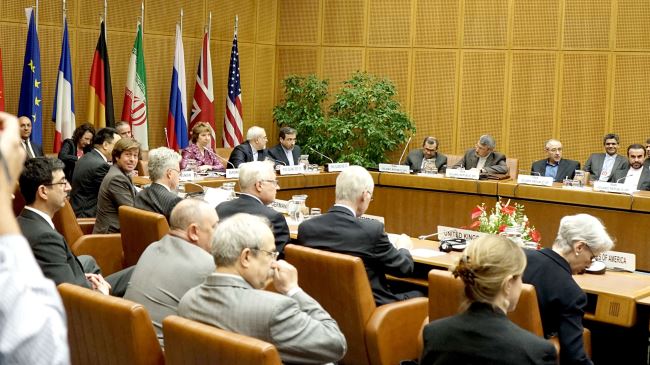 US Catholic bishops have called on Western countries involved in the nuclear negotiations with Iran to take into account the power of fatwa (edict) issued by Leader of the Islamic Revolution Ayatollah Seyyed Ali Khamenei on the prohibition of nuclear weapons.
US Catholic bishops have called on Western countries involved in the nuclear negotiations with Iran to take into account the power of fatwa (edict) issued by Leader of the Islamic Revolution Ayatollah Seyyed Ali Khamenei on the prohibition of nuclear weapons.Earlier in April, a six-strong delegation from the US Conference of Catholic Bishops (USCCB) travelled to the central Iranian holy city of Qom to meet with top Shia clerics in an effort to narrow differences between Tehran and the West over the country�s nuclear energy program.
�Iran is a very, very religious culture. It is also a very modern culture. And it is not all like the caricature of the fanatic religion that we see depicted too often ... and the fatwa needs to be looked at in that light,� said Stephen Colecchi, a leading USCCB official.
On February 22, 2012, Ayatollah Khamenei said the Islamic Republic considers the pursuit and possession of nuclear weapons �a grave sin� from every logical, religious and theoretical standpoint.
The bishop said that the US was not considering Iran�s religious objections to weapons of mass destruction in the ongoing nuclear negotiations between Tehran and the six world powers -- the United States, France, Britain, Russia, China and Germany.
The fatwa does have some �relevance� in the ongoing nuclear talks, he said, adding that it was �pervasively taught and defended in Iran.�
�I would argue that we ignore the influence of religion as a motivator and validator at our own peril,� said the bishop.
Bishop Richard Pates, the chairman of the USCCB's committee on international justice and peace, also said that the Iranian clerics told the bishops' delegation that the fatwa was �a matter of public record and was highly respected among Shia scholars and Iranians generally.�
During the visit, senior Iranian clerics assured the delegation that nuclear weapons �are immoral because of their indiscriminate nature and their powerful force of destroying all types of innocent communities,� said Pates.
�Iranians feel profoundly misunderstood by America and the West,� he added.
The remarks came as Iran and six major world powers - the United States, France, Britain, China, Russia and Germany - are holding talks to work out a final deal aimed at ending the longstanding dispute over the Islamic Republic�s civilian nuclear work as a November 24 deadline approaches.
By Press TV
The Iran Project is not responsible for the content of quoted articles.










